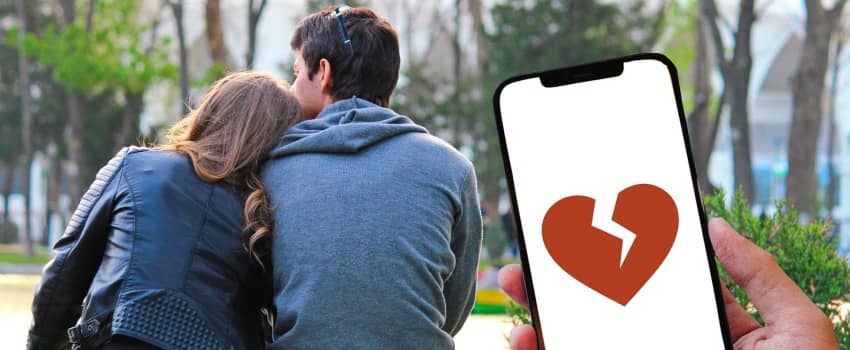Adultery in Georgia: How It Affects Divorce

Adultery plays a unique and sometimes profound role in Georgia divorce law. Navigating divorce is already complex, but when adultery is involved, its effect can extend beyond personal heartbreak into tangible legal outcomes.
Georgia is one of the relatively few states where adultery is both a criminal offense and a potential "fault ground" for divorce, which means evidence of an affair can impact alimony, property division, and sometimes even custody. It is worth noting that it has been a very long time since Georgia has prosecuted anyone accused of adultery.
This comprehensive article explores exactly how adultery affects each aspect of a Georgia divorce, the burdens of proof, and what practical steps individuals should take when facing these circumstances.
Adultery in Georgia Divorce Law
Adultery in Georgia is legally defined as either heterosexual or homosexual sexual intercourse by a married person with someone who is not the spouse. While it’s technically a misdemeanor crime under state law, criminal prosecutions are almost nonexistent. Instead, its main significance in the modern era is within civil divorce proceedings.
Georgia allows both no-fault (irretrievably broken) and fault-based divorces. Adultery is a legally recognized condition (grounds) for filing divorce. Litigating a divorce on the grounds of adultery, versus irretrievably broken, can be a game changer for certain outcomes.
Adultery as a Ground for Divorce
Filing for divorce in Georgia can proceed on either fault or no-fault grounds. To seek divorce for adultery, the accusing spouse must prove:
- The other spouse engaged in voluntary sexual intercourse with someone outside the marriage
- The adultery was the true cause of the marriage’s breakdown and separation
- Proof can involve witness testimony, hotel receipts, electronic correspondence, or other direct and circumstantial evidence.
Adultery and Spousal Support
The denial of Spousal Support (alimony) is the critical legal consequence of adultery in Georgia. Georgia law automatically disqualifies a spouse who has committed adultery. In practical terms, this means:
If the cheating spouse seeks alimony, the other side can have the request denied by proving an adulterous act was committed. Strategically thinking, even without having concrete evidence, a cheating spouse may stop seeking alimony to avoid scrutiny in court.
Both direct and circumstantial evidence can be used to substantiate adultery as a legitimate cause for the divorce. However, if the couple had marital relations after learning of the adultery, or if both spouses were unfaithful, the potential for alimony may remain in play.
Adultery and Property Division
Georgia applies an "equitable distribution" approach to dividing marital property. This means anything deemed marital property is divided fairly, but not necessarily 50/50. Regarding the effect of adultery on property division:
If the cheating spouse used marital money or marital assets on the affair, the court may consider this marital waste or dissipation of marital assets. Examples of marital waste are using funds for gifts, entertainment, etc., for the paramour.
The innocent spouse can pursue a claim to recoup more of the remaining marital assets as fair compensation.
Adultery itself does not drive direct punitive decisions. However, the existence of adultery may influence the court to bias property decisions to address perceived marital financial losses.
Adultery and Child Custody
Typically, adultery is rarely a factor in deciding custody or parenting time. In Georgia, custody decisions are based on a perception of what serves the best interests of the child. The court considers numerous factors, including each parent’s home environment, ability to provide proper care, etc. Additionally, children over 14 years of age can generally decide with which parent they want to live.
Adultery can affect custody if a reasonable possibility exists that a parent may expose the child to inappropriate situations. The court recognizes that behaviors such as promiscuity, drug use, alcoholism, and domestic violence are problematic. The facts of the adulterous behavior can generate doubts about a parent’s ability to maintain a healthy home for minor children.
Requirements to Prove Adultery
Georgia courts require the spouse accusing adultery to provide clear evidence meeting the legal standard. Types of evidence often accepted include:
- Video, photo, or audio recordings.
- Letters, cards, emails, or texts proving physical involvement.
- Receipts or records linking the spouse to others.
- Witness testimony about things they observed or heard.
- Direct confessions by the spouse or other party.
Circumstantial evidence is allowed as evidence in divorce in Georgia. However, unsubstantiated suspicion or gossip will not be considered evidence in court.
Disputing Adultery Allegations
If you are accused of committing adultery, you need a lawyer experienced in fighting such accusations. A spouse accused of adultery can leverage several defense strategies, including:
- Arguing that any alleged affair was not the cause of the marriage failure.
- Proving that both parties engaged in marital infidelity.
- Showing the innocent spouse forgave the transgression by continuing marital relations after learning about the relationship.
Dating During Separation
Georgia law is very clear on what constitutes adultery. Sexual intercourse with someone besides a spouse, even during a time of separation, is considered adultery. Dating without sex is not, but the appearance of impropriety can complicate litigating your divorce. Before your divorce is final, being involved with others has more risks than rewards.
Adultery and Divorce Timelines
Pursuing a divorce based on only adultery is not a wise move. Unless you are seeking to avoid paying spousal support, you may want to ignore litigating a divorce over adultery. It is often not worth the time and emotional expense to get into the matter.
Criminal Consequences of Adultery
While adultery is on the books as a misdemeanor offense, adultery has not been crimnally prosecuted in a very long time. Regarding divorces, the strategic value of adultery is being able to avoid having to pay spousal support. Aside from that, it can be leveraged in litigation. Sometimes a spouse fights less if they know that they could be forced into unpleasant conversations about their behaviors.
Dealing with Adultery During Divorce
Gather Evidence Early: Acquire and document anything relevant. Private investigators are great if you have the funds. Find a safe place to keep your information (not in your home).
Consult a Lawyer: Arrange a free divorce lawyer consultation to learn what you should, and should not, do at this time.
Avoid Problematic Behaviors: Do not do anything that could get you arrested or empower your spouse to get a restraining order on you. Take legal steps to secure financial assets and accounts.
Prepare For Turmoil: Your life may get stressful, and present unexpected problems. Consult with a lawyer. Make plans that protect you and your children.
Summary & Takeaways
Adultery in Georgia, if proven, can have a significant impact on certain aspects of a divorce. Specifically, it can nullify rights to receive spousal support, alter the division of property, and influence the Parenting Plan. Whether this works for or against you, if adultery exists, you need the guidance of a top divorce lawyer in Cherokee County, Georgia.
Footnotes & Credits
Image by Victoria from Pixabay


